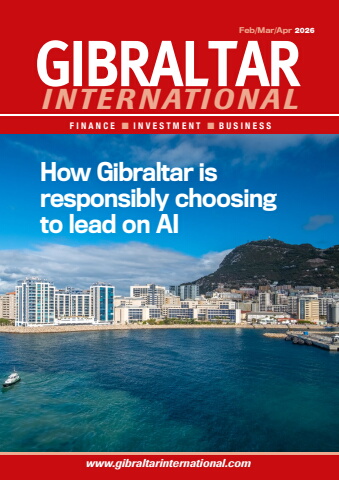Brexit and the Gibraltar Funds Industry
By Jay J. Gomez, Senior Associate, Triay & Triay
Even before the referendum in June 2016 there were numerous articles on the likely impact Brexit would have on the financial markets generally. From the Gibraltar funds industry perspective, Brexit is likely to have little negative impact and if promoted effectively could in fact improve Gibraltar’s rankings in the international arena.
Gibraltar’s primary fund products are the experienced investor fund (EIF) and the private scheme (private fund). Both products are born out of domestic legislation, fall within the alternatives space, pre-date EU legislation on alternative investment funds (Alternative Investment Fund Managers Directive 2011/61/EU)(AIFMD) and most importantly, will remain unchanged post-Brexit. The large majority of the EIFs and private funds established to date remain out of scope of AIFMD: primarily by ensuring that their assets under management do not exceed €100M or €500M in the case of certain closed-ended funds. This is commonly referred to as the de minimus threshold or a small AIFM.
With the exception of the pan-European marketing passport and the ability for a fund manager to manage funds domiciled in any EU jurisdiction, AIFMD has, since its inception, rightly or wrongly, been perceived quite negatively by the global asset management sector for a whole host of reasons. Whilst of course consumer protection is at the core of every regulator’s objective, the industry’s main issue with the AIFMD has been the perception that it was one of the EU’s knee-jerk reactions to the 2008 financial crisis and has substantially increased their cost ratios.
The global industry’s primarily negative perception of AIFMD has resulted in a trend which was quite contrary to what many thought the AIFMD would achieve: in the build-up to the transposition date, many believed AIFMD would result in a mass exodus of funds from traditional offshore jurisdictions into EU jurisdictions in order to seek a higher level of regulation and compliance. Following the transposition date, the reality was that many managers continued to domicile their funds in the Channel Islands and the Caribbean and neither was the momentum broken by investors only seeking to invest in AIFMD compliant funds. Investments into non-AIFMD compliant funds continued and, in many ways, the status quo was maintained.
AIFMD applies to:
– EU fund managers that manage a fund (EU or non-EU);
– Non-EU fund managers that manage an EU fund; or
– Non-EU fund managers that market their fund (EU or non-EU) in the EU.
As we all now know, notwithstanding the results of the referendum in Gibraltar (95.9% remain), Brexit = Gibexit.
Post Brexit it is likely that a Gibraltar fund will never fall within the scope of AIFMD unless it purposely structures itself to access the EU market (e.g. by appointing an EU fund manager or marketing itself in the EU). This puts Gibraltar’s fund products back on a level playing field with the likes of the Channel Islands and the Caribbean but with the added benefit of a well-regulated EIF regime, a very competitive private fund product, a professional services sector that understands the industry and an appealing tax regime which stems from domestic law and will remain unchanged by Brexit. The Gibraltar fund proposition suddenly becomes very strong and far more convenient from a practical and travel perspective for those based on the European continent.
As they currently do now, post Brexit, EIFs and private funds may wish to promote in the EU using the national private placement regimes available for funds that are out of scope of AIFMD. Brexit does not change this.
Post Brexit, access to the UK from most jurisdictions is likely to be more cumbersome. On the other hand, from Gibraltar, the self-styled single market to be created between Gibraltar and the UK, puts the Gibraltar product at a huge advantage when compared to any other jurisdiction if access to the UK is a must. Gibraltar could become the gateway to the UK market for funds offerings.
Although at the point of writing this article it seems unlikely, if we do retain some form of EU market access, the ground work to Gibraltar’s legislative framework has already been undertaken to ensure that EIFs and private funds can avail themselves of EU market access benefits if they so wish. The Gibraltar Funds and Investments Association in conjunction with HM Government of Gibraltar has worked very hard to ensure that our legislation is fit for purpose. This would result in EIFs and private funds complying with AIFMD only if they so wish to take advantage of the benefits and this is what we commonly refer to as the “dual regime”.
Finally, in the retail funds space, the directives on undertakings for collective investments in transferrable securities (UCITS) has had a very different industry adoption and has become the benchmark for retail funds on a global scale. A small number of EU jurisdictions have become the “go-to” for the domiciliation of UCITS. There is a very large number of UCITS domiciled in those jurisdictions which are in-turn UK facing and thereby raise investment in the UK. If we assume a hard-Brexit, it will no longer be possible for those UCITS to market themselves in the UK. On the other hand, a Gibraltar UCITS post-Brexit will have UK access under the Gib-UK self-styled single market and this, if promoted effectively, represents a huge opportunity for Gibraltar.
Gibraltar could become a unique proposition for both the alternatives and retail fund markets.





